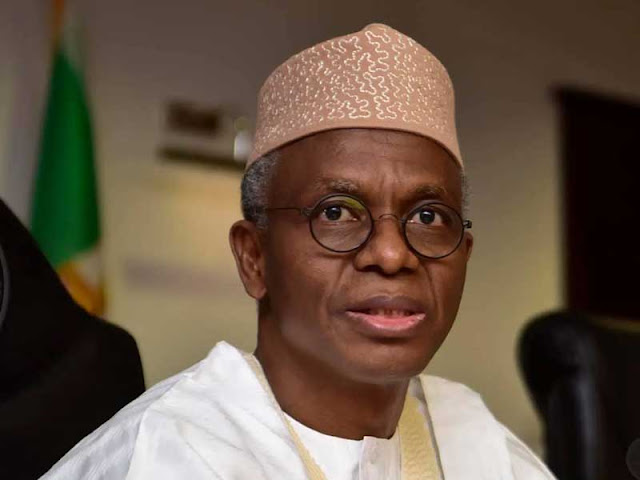Allegations of constitutional violations have surfaced from a high-profile political voice, as former Kaduna State Governor, Nasir El-Rufai, has publicly accused President Bola Ahmed Tinubu of illegally withdrawing ₦100 billion from the Federation Account on a monthly basis. The claim, which has ignited a political firestorm, centers on assertions that such deductions are neither transparent nor backed by constitutional provisions.
Speaking during a closed-door session with party stakeholders that later leaked to the press, El-Rufai expressed grave concern about what he described as a troubling pattern of financial mismanagement at the highest level of the Nigerian government. According to him, the continuous, unapproved monthly deductions represent a breach of trust and a clear violation of the Nigerian Constitution.
Without mincing words, El-Rufai stated, “Every month, President Bola Tinubu deducts ₦100 billion from the Federation Account. This is unconstitutional and an impeachable offence.” His statement, although terse, carries explosive political implications. The former minister, known for his blunt critique of governance, framed the deductions as an affront to Nigeria’s fiscal federalism.
Reactions from various political and civil society groups have been swift and polarized. While some have dismissed the comments as politically motivated, others are calling for a full legislative inquiry into the management of federal funds. Legal experts and constitutional scholars are also weighing in, pointing out that Section 162 of the 1999 Constitution outlines how funds in the Federation Account should be distributed, with any deviation requiring formal approval by the National Assembly.
El-Rufai’s remarks, though brief, echoed a broader concern about executive overreach. He questioned the absence of a detailed public record for these monthly deductions, emphasizing that the lack of transparency undermines democratic accountability. He further hinted at the likelihood that state governments are being shortchanged in the process, potentially affecting public sector salaries, infrastructure development, and other essential services.
Efforts to obtain an official response from the Presidency have so far yielded no result. Calls and emails sent to presidential spokespersons have gone unanswered, and the President himself has remained silent on the matter. Analysts see this as a calculated move to allow the storm to pass, but the political pressure appears to be mounting.
Among those lending weight to El-Rufai’s claims are some opposition figures and state-level officials who say they have long suspected irregularities in the federal allocations process. Although no governor has yet publicly confirmed or denied the alleged monthly deductions, sources within a few state finance ministries suggest that there have been unexplained shortfalls in monthly disbursements from Abuja.
The controversy is already fueling debates within the National Assembly, with a few legislators calling for a special investigative hearing. An anonymous senator from the North-Central zone disclosed that talks are ongoing among lawmakers who believe the allegations should not be ignored, especially given the gravity of the claim and its potential impact on the rule of law.
Civil society organizations have also begun mobilizing. BudgIT, a transparency advocacy group, issued a statement urging the Office of the Accountant-General of the Federation to publish all Federation Account receipts and deductions dating back to May 2023, when Tinubu assumed office. They argue that making the data public would either vindicate the President or validate the claims made by El-Rufai.
On social media, reactions have been mixed. Supporters of the President have dismissed El-Rufai’s statement as politically charged and aimed at destabilizing the administration. However, others are calling for mass protests and citizen-led accountability measures, insisting that no office, not even that of the President, should be above the law.
Despite the uproar, it remains unclear whether the National Assembly has the political will to initiate impeachment proceedings, which require a two-thirds majority. The ruling All Progressives Congress still holds a significant majority in both legislative chambers, and many of its members are unlikely to move against the President unless overwhelming public pressure demands it.
This emerging scandal, regardless of how it unfolds, signals a deeper undercurrent of dissatisfaction within the ruling party and among the broader public. If these allegations are not properly investigated and resolved, they could further erode public trust in democratic institutions and ignite wider calls for structural reforms in the management of Nigeria’s public finances.
Every month, President Bola Tinubu deducts ₦ 100B from the Federation account. This is unconstitutional and an impeachable offence.
— DGov (@omoluabi1sq) July 17, 2025
EL- RUFAI. pic.twitter.com/KGEy7OAbWD













![Content Creator Angelica Kelechi Speaks Out on Alleged Sexual Assault at Khloe Abiri’s Spa [VIDEO]](https://blogger.googleusercontent.com/img/b/R29vZ2xl/AVvXsEgQStip4cn2DAOvQ2hNFU30OAFWoxfQIDOnStd0uVgwwxKrFAQYYvtFni6QV04OGP8dyKk5TCAhXM5es9linl1ClhjPzaazz2tTt0LmJ5lFVe5202o2McF9QROT1v2hEyNTdY-M1KRuLTY6OqqysKNfcsY5bCtwCIP8wEQ4AXcfQfTaXWWZiixqf82NDH5a/w72-h72-p-k-no-nu/abiri-khloe123.jpg)






0 Comments
Hey there! We love hearing from you. Feel free to share your thoughts, ask questions, or add to the conversation. Just keep it respectful, relevant, and free from spam. Let’s keep this space welcoming for everyone. Thanks for being part of the discussion! 😊